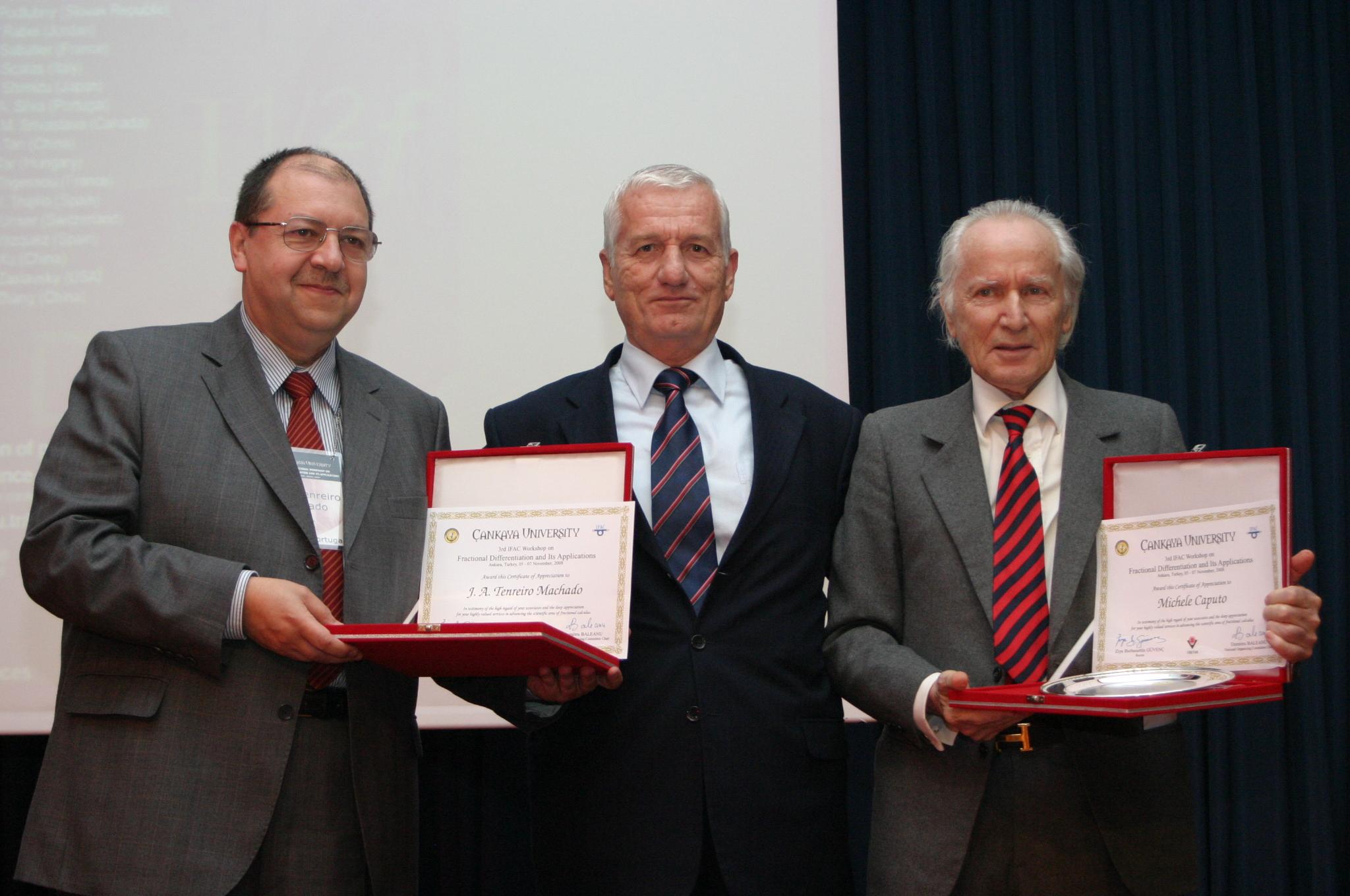- Control
- Robotics
- Modeling
- Fractional Calculus
- Complex Systems
- Entropy
- Data Analysis
- Visualization
Basic Information
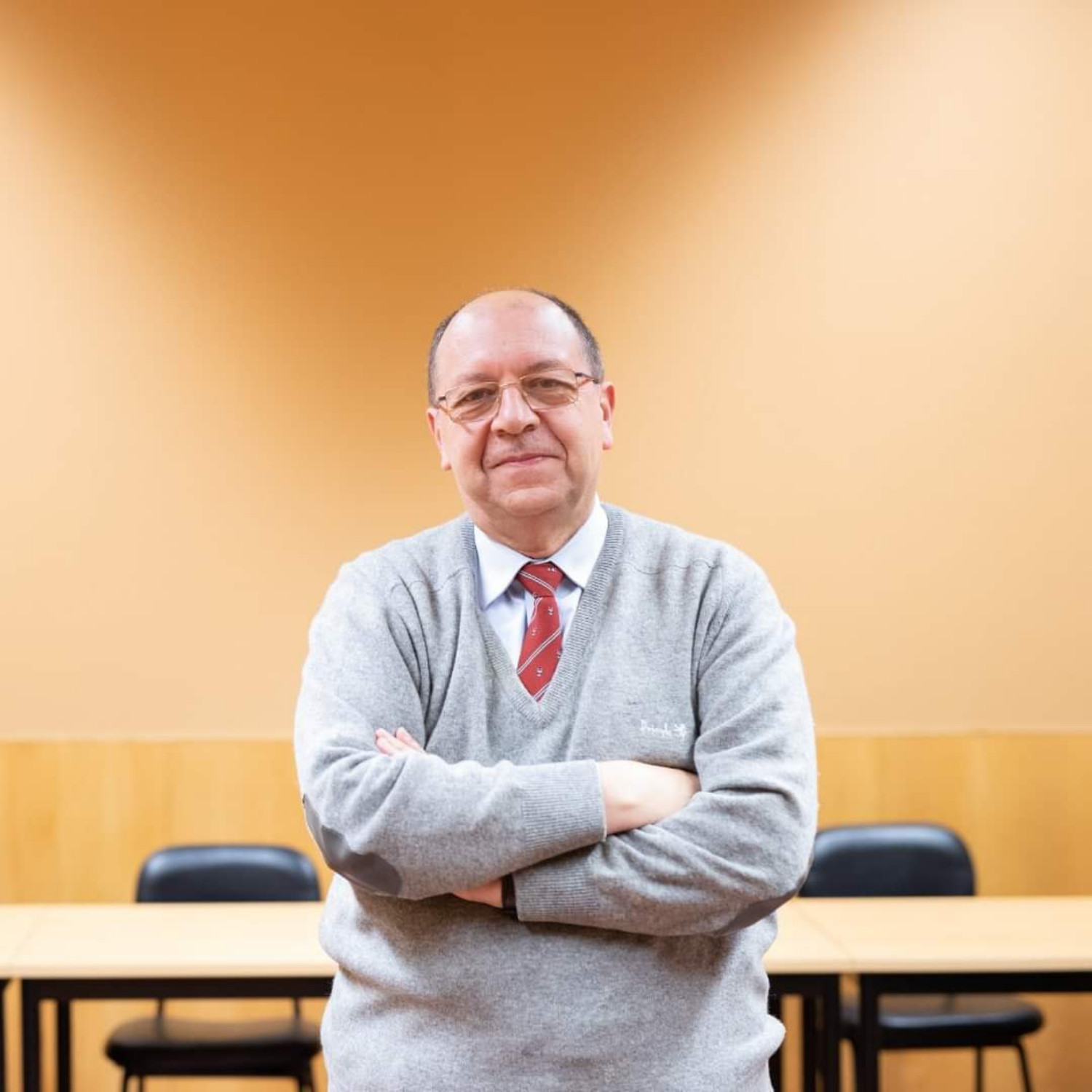
(Oct 1957–Oct 2021)
Location: Pinhel, Portugal
1. Brief Introduction and Early Life
Professor José António Tenreiro Machado, (see figure 1) was passionate about science. This manuscript intends to present his main research interests, pointing to the most relevant work that was published throughout his life. Moreover, a brief description of his early life and international academic career are also presented. His contributions to control, robotics, modeling, complex systems and Fractional Calculus (FC) are emphasized.
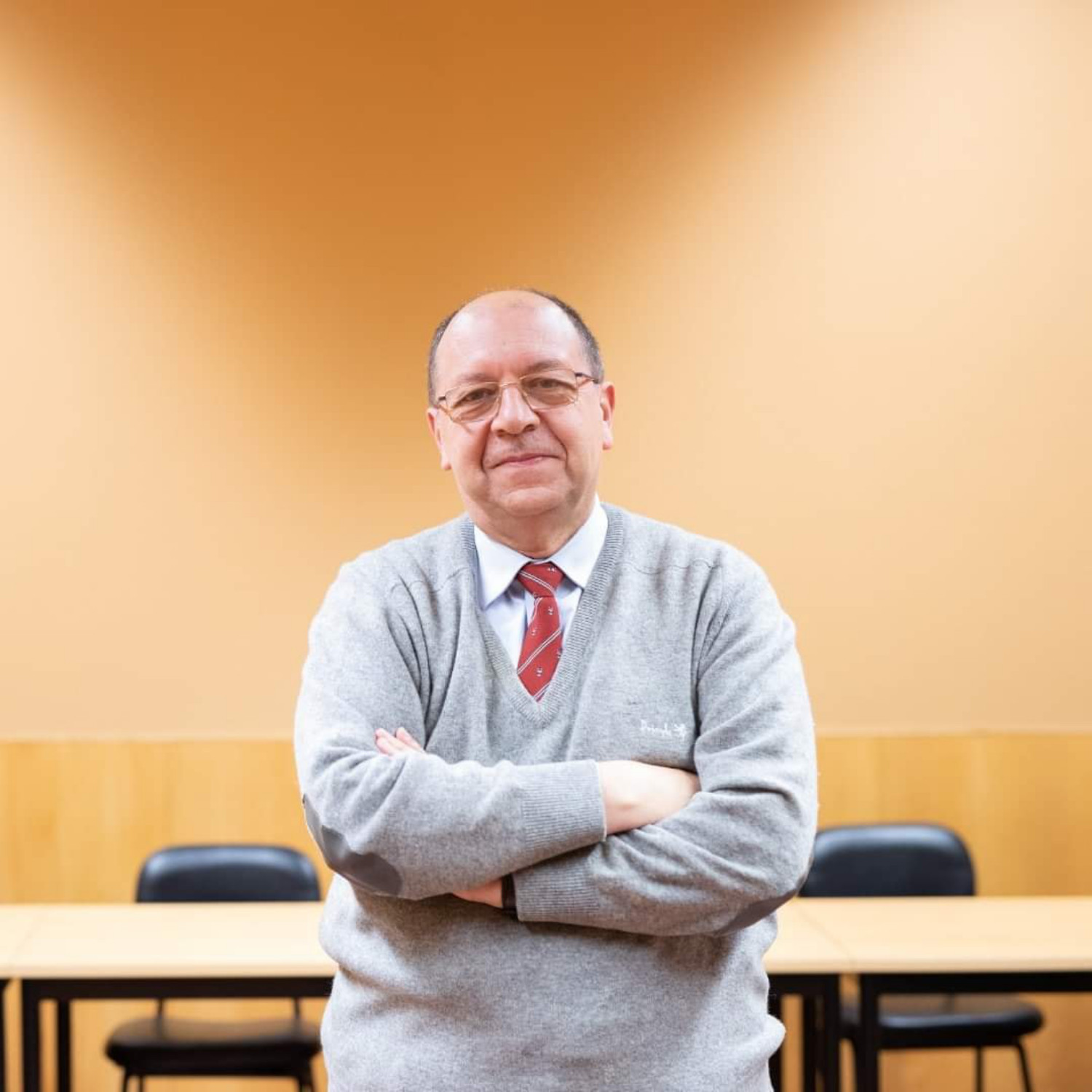
Figure 1. Prof. Tenreiro Machado (2020) at the Dept. of Electrical Engineering, Institute of Engineering, Polytechnic Institute of Porto.
José António Tenreiro Machado was born on the 6th October 1957, in Pinhel, Portugal. In the sequence of his parents’ separation, at the age of two, he and his mother moved to Porto to live with his maternal grandparents. His grandparents became his family pillars. At the age of fifteen, his grandmother died of cancer and, two years later, his grandfather remarried. He and his mother lived on the first floor of the family’s house, while the ground floor was rented. At the time, this was the only household financial income, since his mother had no professional career and income. In high school, he was an excellent student, and started giving private lessons to other high school students, while continuing his studies. As a university student, he carried on tutoring his university peers. With this income, he paid his studies and helped his mother financially. During the same period, he was a chess player and won many trophies of rapid chess tournaments. He finished his Electrical Engineering degree with the highest classification and received the “Engo Cristiano P. Spratley" award, for the best student of the Faculty of Engineering of the University of Porto.
2. Background about Notable Contribution
His academic career started in 1980 as an assistant professor at the Faculty of Engineering of the University of Porto. There he met his future wife, Alexandra, in 1981. They married on 12 December 1982. Moreover, at the beginning of his professional career, he worked in the industry, more specifically in fluid-power hydraulics and electronics. In 1984, his first son, José, was born.
From 1985 to 1988, Tenreiro Machado, figure 2, took a leave of absence to establish a new engineering college at the Polytechnic Institute of Viseu (Viseu, Portugal). He defended, in 1989, his PhD thesis entitled “Structural Resource Management in the Control of Robot Manipulators” and, in 1995, the “Habilitation”, in which he presented the overview lesson “Computational Problems in Robot Control”, at the University of Porto. In that same year, his second son, António, was born. His work at the Department of Electrical and Computer Engineering of the University of Porto ended in 1998, carrying on his academic career at the Department of Electrical Engineering, at the School of Engineering of the Polytechnic Institute of Porto (DEE-ISEP/IPP), as a Coordinator Professor. There, he was assigned as Principal Coordinator Professor, in 2016. In that capacity, he became the dean of both the School of Engineering and the Polytechnic Institute of Porto.
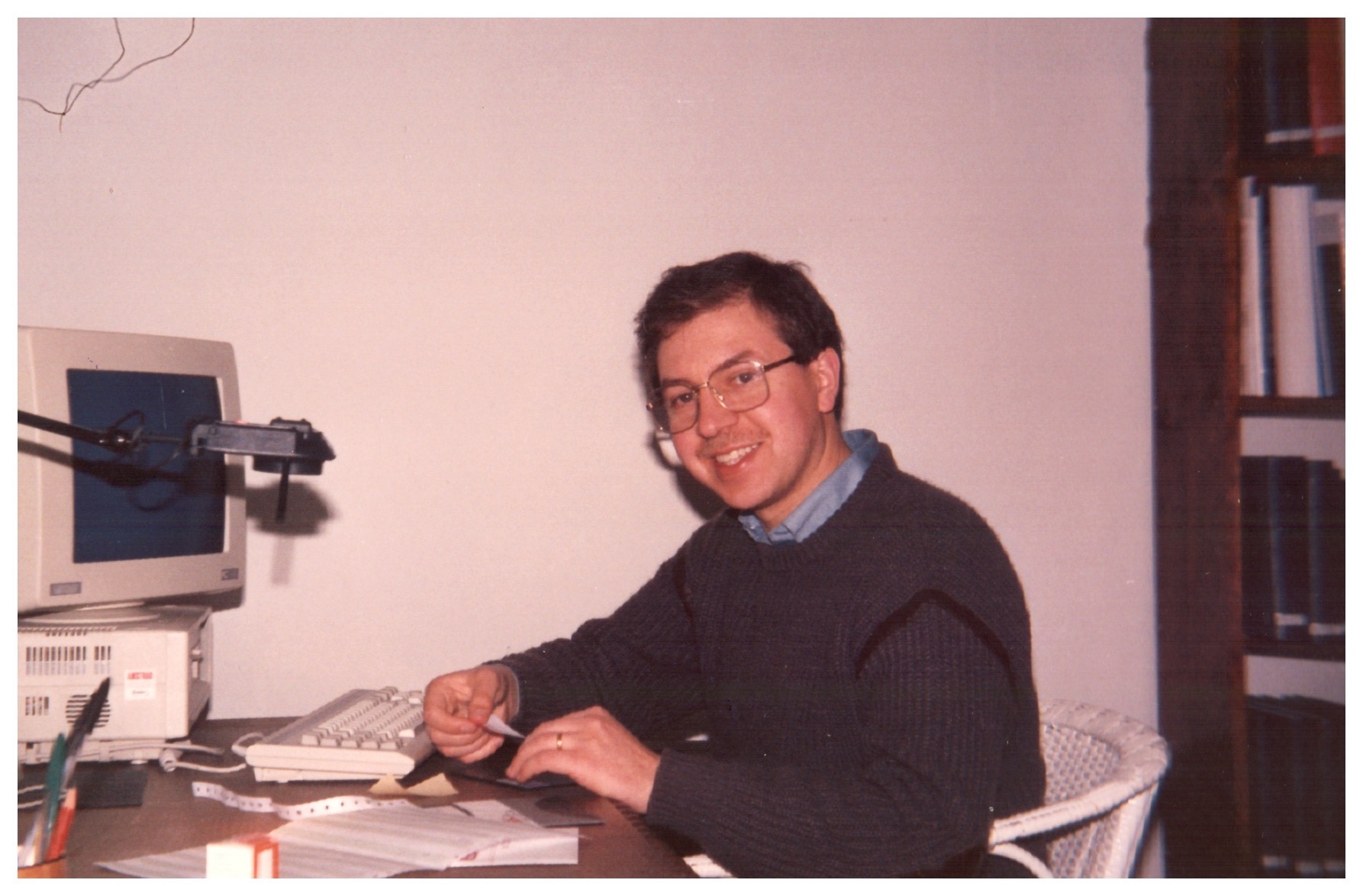
Figure 2. Prof. Tenreiro Machado (1988) at home.
Throughout his academic activity, he was director of several 1st and 2nd degree (licenciatura/bachelor’s and master’s degrees) university courses on Automation and Control, Management, Electrical and Computer Engineering. He supervised the design of the university’s 1st degree courses in Electrical and Computer Engineering, Systems Engineering, Automobile Mechanics Engineering, Control Engineering in the Chemical and Biological Industries, and master degrees in Electrical and Computer Engineering, Construction Technology and Management, Mechanical Constructions, Process and Operations Management, Instrumentation and Metrology Engineering, Medical Instrumentation and Computer Engineering and Sustainable Energies. He also held roles such as Head of Dept. of Electrical Engineering, President of the Scientific Committee of the ISEP, Member of the General Council of the IPP, Dean of both ISEP and IPP, and Scientific Coordinator of the Interdisciplinary Studies Research Center, also at IPP. He was supervisor of 16 concluded and 3 ongoing PhD theses, and was a member of several PhD examination committees in Portugal, Brazil, Spain, France, Belgium, Finland, Poland, and the Czech Republic.
From the very beginning, he was a dedicated and helpful professor. He was a wonderful communicator, always seasoning his classes with a touch of humor that hooked his students and drew them into the subjects that he taught. He taught students of all levels and participated in courses in other Portuguese universities, as well as abroad. He was a supervisor and lecturer of the Doctoral School of Applied Informatics at Óbuda University, Budapest, Hungary, since 2013. He was a visiting professor at the Institute of Applied Computer Science, Lodz University of Technology, Poland since 2014. In 2016, he received the Appointment Certificate “Guest Outstanding Professor at Sichuan University of Science and Engineering”, granted by the university President Tuo Xiang-guo, Zigong, Sichuan, China. Prof. Tenreiro Machado chaired, organized, and participated in several conferences. He also received several awards, figure 3.
Figure 3. Prof. Tenreiro Machado, left, and Prof. Michele Caputo, right, receiving an award at FDA08 - Third IFAC Workshop on Fractional Differentiation and its Applications, 5-7/Nov/2008, Ankara, Turkey.
His research interests spanned a very wide range of topics, including electrical machine control, electronics and fluid-power hydraulics, robotics (position and force control, legged locomotion, modeling, computational architectures, biomechanics and education), nonlinear dynamics, complex systems, fractional order systems, time series analysis, genetic algorithms, evolutionary computing, intelligent transportation systems, vibration control, analysis of mechanical systems with friction and backlash, electromagnetism, bioinformatics, genomics, computational cybernetics, financial analysis, economy dynamics, entropy, and arts. Among most of these subjects, there is a kernel of systems modeling, mainly nonlinear models and complex systems. In his own words, we are in an era where classical modeling techniques based on mathematics should be complemented with data analysis.
He authored over 1160 publications, including 11 books, 575 archival papers, 118 book chapters, 382 presentations and 60 plenary lectures at national and international meetings and conferences, 74 courses in national and international universities, and was the editor of 22 books, advisory editor of 3 book series, editor-in-chief of 1 book series, scientific director of the journal “Robótica e Automação” (Robotics and Automation), guest editor of 55 Special Issues in journals, member of the editorial board, associate editor in several scientific journals, and editor-in-chief of 3 scientific journals. He was a highly cited researcher in the category “Cross-Field of Clarivate Analytics". His scientific achievements are broad, profound, and overarching. His impact on the literature is truly remarkable.
Professor Machado’s contributions to the FC community embraced activities as author, editor, promotor of FC and organizer of events and round table discussions. He hosted and organized the “2nd International Conference Fractional Differentiation and Applications (ICFDA), Porto 2006”, now a regular biannual conference. He was Associate Editor of the Fractional Calculus and Applied Analysis journal (FCAA).
He participated in Nodycast (https://www.nodycast.org/episodes12.html) episodes 1 and 2, the podcast on nonlinear dynamics, where nonlinear modeling and dynamic analysis of pandemics, in particular COVID-19, were produced. The episodes focused on compartment vs. agent-based models, parametric vs. data-based models, seasonality, predictability, control techniques, effect of social behavior, government action, available data and possible research in the future. He was Associate Editor of the Nonlinear Dynamics journal.
He hosted and organized the international conference “Entropy 2021: The Scientific Tool of the 21st Century" that spanned topics as Statistical Physics, Information Theory, Probability and Statistics, Thermodynamics, Quantum Information and Foundations, Complex Systems, and Entropy in Multidisciplinary Applications. He was Section Editor-in-Chief of the journal Entropy.
Among many others, he hosted and organized the “2nd International Conference on Nonlinear Dynamics and Complexity", that took place in October 2021, from 4 to 6, the day of his death.
3. Principal Publications/Works
His first publications regarded the subject of variable structure controllers of mechanical manipulators [1][2]. He also published articles regarding other control techniques, such as computed torque [3], fractional PID controllers [4], in the scope of interaction performance between manipulator and environment [5], between cooperating manipulators [6], and between legged robots and terrain [7][8][9][10]. He explored subjects such as robot manipulators trajectory planing, kinematics and dynamics analysis and optimization [11][12][13][14], evolutionary computing for robot optimization [15], nonlinear analysis for identifying rich dynamical phenomena on robot motion [16], and techniques for exploring manipulator redundancy [17]. He worked on intelligent transportation systems modeling and control [18][19]. More recently, he continued his work embedding concepts from FC [20][21][22][23][24][25][26][27][28][29], and from dimensionality reduction, clustering and computer visualization tools [30][31][32]. He used evolutionary computing in circuit design [33][34].
His most recent published works, pedagogical in nature, are the books entitled “Solved Problems in Dynamical Systems and Control" [35] and “An Introduction to Bond Graph Modeling with Applications" [36].
He used the concept of entropy to analyse complex systems. He proposed new entropic formulations, as the so-called Machado’s entropy [37] as well as other formulations in the framework of FC [38][39]. He applied several computational techniques to a huge number of fields. We can mention “Entropy analysis of systems exhibiting negative probabilities" [40], “Accessing complexity from genome information” [41], “Fractional order description of DNA" [42], “Fractional generalization of memristor and higher order elements" [43], “Bond graph and memristor approach to DNA analysis" [44].
In his scientific production, we can find works of extreme beauty [45] where he proposes a computational model, an abstraction of the natural world, to study a discrete dynamical system of interacting particles, evolving through this interaction. The patterns that unfold are analysed by means of fractal dimension and entropy measures. Also, reference [46] provides a thought experiment to analyse some hidden texture of time.
Multidimensional scaling (MDS) analysis was applied to data from noninvasive lung tests [47], to investigate the risk factors for the severity of orthodontic root resorption [48], as an important tool to study the quantitative and qualitative behavior of 22 viral infectious diseases [49], and of Sars-Cov-2 and other viruses [50]. MDS analysis was also applied to evaluate fractional order systems [51], financial data [52][53], economic data [54][55][56], and political systems [57]. Other interesting applications of MDS visualization were earthquake phenomena [58], performance of soccer teams in national leagues [59], forest fires [60], global warming and the associated climate changes [61], global terrorism patterns [62], industrial accidents [63], solar system objects [64], chemical elements [65], musical compositions [66], arts [67].
Besides MDS, other tools were recurrent in his papers, namely entropy analysis, fractal dimension, state space analysis and power laws. A review of the latter can be found in [68]. The Special Issue on Computational Complexity [69] is devoted to novel theoretical and practical works, and computational algorithms, applied to complex problems, requiring heavy computational resources. Reference [70] analyses the dynamics of SARS-CoV-2 propagation, using statistical comparison and visualization of country-based real data. In [71] the nontrivial zeros of the Riemann zeta-function are analysed and interpreted as the basic elements of a data set, using MDS algorithm and computational visualization features.
His most prolific scientific production is associated with FC. His first FC paper analysed and designed fractional order digital control systems, and was published in 1997 [72]. Thereafter, he worked and wrote several papers on the topic, of which 51 as a single author. Among his most cited works are “Advances in Fractional Calculus" [73], a book containing 37 papers on the applications of FC, and “Recent History of Fractional Calculus" [74], which is a survey paper of the major documents and events in FC, from 1974 to 2010.
Beyond his scientific results and many surveys on history and science metrics in FC, he created some very popular posters, such as “A poster about the old history of Fractional Calculus" (2010) in [75], “A poster about the recent history of Fractional Calculus” (2010) in [76], “Fractional Calculus – Models, Algorithms, Technology" (2015) in [77], figure 4. He had very wide interests and a deep cultural background illustrating science and FC gathering from famous movies, novels, evergreens, paintings, …, that were the inspiration for many of his paper’s titles, among which: “Suggestion from the past?” [78], “And I say to myself: ‘What a fractional world!’” [79], “Rhapsody in fractional” [80], “Fractional calculus: Quo vadimus? (Where are we going?)” [81], “Fractional calculus: D’où venons-nous? Que sommes-nous? Où allons-nous?” [82], “Fractional calculus’s adventures in wonderland” [83], “The persistency of memory" [84].
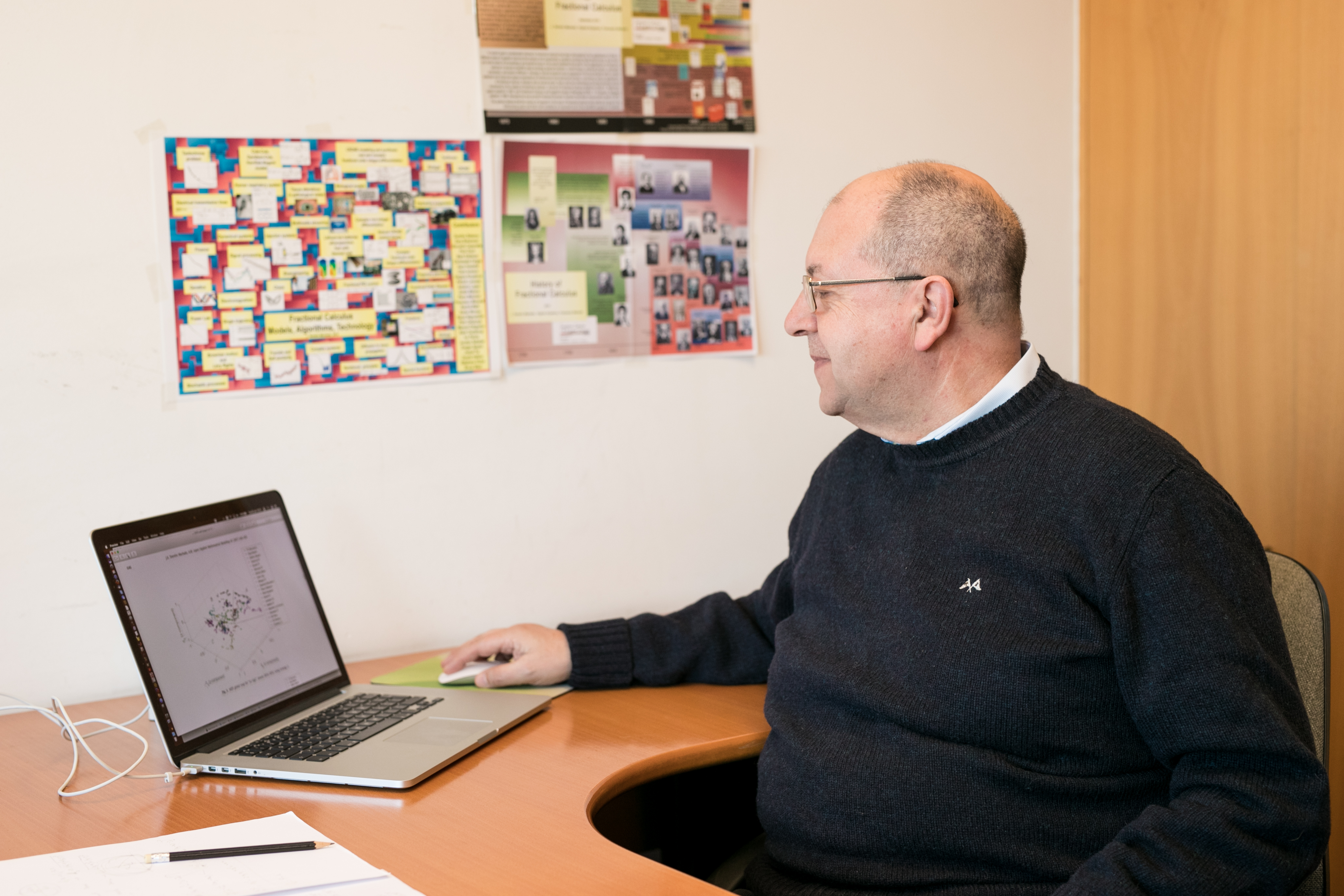
Figure 4. Prof. Tenreiro Machado (2019) at his office in the DEE-ISEP/IPP, with his posters in the background.
He tackled subjects as variable-order fractional derivatives [85], variable-order fractional integro-differential equations [86][87], the design of variable-order fractional proportional–integral–derivative controllers for linear dynamical systems [88], the numerical solution of the nonlinear time-fractional telegraph equation [89], a computational technique to solve the fractal mobile-immobile transport model [90], approximating the time fractional Tricomi-type model in the sense of the Caputo derivative [91].
Applications of FC in biomedicine and biology can be found in [92]. There, non-integer differ-integral solutions and non-integer parametric models are used to model the properties of respiratory lung tissue, drug diffusion, action potential and spiking patterns in neurons, bio-systems. Electrical Impedance Spectroscopy and FC tools are applied to model and characterize leaves and ultra-pasteurized milk [93][94]. He published, in 2019, a multi-volume book series entitled “Handbook of Fractional Calculus with Applications", with a total of 8 volumes [95].
From his late works, we can highlight “The bouncing ball and the Grünwald-Letnikov definition of fractional derivative" [96], “Trends, Directions for Further Research, Some Open Problems of Fractional Calculus" [97], “A Clustering Perspective of the Collatz Conjecture" [98], “The 21st Century Systems: An Updated Vision of Continuous-Time Fractional Models" [99] and “The 21st Century Systems: An Updated Vision of Discrete-Time Fractional Models" [100].
4. Legacy
Scientific journals, after his passing, published obituaries in memoriam of Prof. Tenreiro Machado. We can highlight [101][102][103]. In the latter testimonials of several renowned international researchers, who have collaborated with him throughout his academic life, were added. Having been Editor-in-Chief of the Journal Mathematics and Section Editor-in-Chief of the Journal Entropy, MDPI lauched a joint Special Issue in his honor, “Dynamical Systems and Their Applications (DSTA) — In Memory of Prof. Dr. José A. Tenreiro Machado", with publications in the Journals Mathematics, Entropy and Fractal and Fractional [104]. Several conferences were dedicated to the memory of Prof. Tenreiro Machado, as well as scientific awards in his name. To this date, we can mention “J.A Tenreiro Machado Award for breakthrough achievements in Fractional Calculus" in the International Conference on Mathematical Analysis and Applications in Science and Engineering – ICMA2SC’22 (https://www.isep.ipp.pt/Page/ViewPage/ICMASC_award), and “J.A.T. Machado Award: FDA Dissemination" in the International Conference on Fractional Differentiation and its Applications (ICFDA 2022) (https://www.ajman.ac.ae/en/icfda2022/awards).
We must say that “Hilbert’s oath in his PhD graduation ceremony" could stand as an accurate description of Tenreiro Machado’s life:
I ask you solemnly whether by the given oath you undertake to promise and conform most conscientiously that you will defend in a manly way true science, extend and embellish it, not for gain’s sake or for attaining a vain shine of glory, but in order that the light of God’s truth shine bright and expand.
This entry is adapted from the peer-reviewed paper 10.3390/math10010049
References
- Machado, J.T.; de Carvalho, J. A smooth variable structure control algorithm for robot manipulators. In Proceedings of the 1988 International Conference on Control - CONTROL 88. IEEE, 1988, pp. 450–455.
- Machado, J. Variable Structure Control of Manipulators with Joints having Flexibility and Backlash. Systems Analysis Modelling Simulation 1996, 23, 93–101
- Machado, J.; de Carvalho, J.; Galhano, A. Analysis of robot dynamics and compensation using classical and computed torque techniques. IEEE Transactions on Education 1993, 36, 372–379. https://doi.org/10.1109/13.241614.
- Machado, J. Optimal tuning of fractional controllers using genetic algorithms. Nonlinear Dynamics 2010, 62, 447–452. https://doi.org/10.1007/s11071-010-9731-5.
- Ferreira, N.; Machado, J. Fractional-order hybrid control of robots manipulators. In Proceedings of the ICAR 2003 - 11th International Conference on Advanced Robotics. IEEE, 2003, pp. 1–8.
- Ferreira, N.; Machado, J.; Tar, J. Two Cooperating Manipulators with Fractional Controllers. International Journal of Advanced Robotic Systems 2009, 6, 343–348. https://doi.org/10.5772/7243.
- da Silva, F.; Machado, J.; Lopes, A. Kinematic Analysis and Modelling of Biped Locomotion Systems. RBCM-J of the Braz. Soc. Mechanical Systems 1999, XXI, 402–413.
- Silva, M.; Machado, J.; Lopes, A. Fractional Order Control of a Hexapod Robot. Nonlinear Dynamics 2004, 38, 417–433. https://doi.org/10.1007/s11071-004-3770-8.
- Silva, M.; Machado.; J.A. Tenreiro.; Lopes, A. Modelling and simulation of artificial locomotion systems. Robotica 2005, 23, 595–606. https://doi.org/10.1017/S0263574704001195.
- Silva, M.; Machado.; J.A. Tenreiro.; Barbosa, R. Complex-order dynamics in hexapod locomotion. Signal Processing 2006, 86, 2785–2793. https://doi.org/10.1016/j.sigpro.2006.02.024.
- Machado, J.; de Carvalho, J. A Statistical Approach to the Analysis and Design of Robot Manipulators. In Proceedings of the 1988 IEEE International Workshop on Intelligent Robots and Systems. IEEE, 1988, pp. 471–476.
- Machado, J.; Galhano, A. A Statistical Perspective to the Fourier Analysis of Mechanical Manipulators. Systems Analysis Modelling Simulation 1998, 33, 373–384.
- Galhano, A.; Machado, J. A biomechanical perspective for the kinematic analysis of robot manipulators. Systems Analysis, Modelling, Simulation 2000, 36, 471–484.
- Pires, E.S.; Oliveira, P.B.M.; Machado, J. Manipulator trajectory planning using a MOEA. Applied Soft Computing 2007, 7, 659–667. https://doi.org/10.1016/j.asoc.2005.06.009.
- Pires, E.; Oliveira, P.; Machado, J. Multi-objective Genetic Manipulator Trajectory Planner. In Proceedings of the Applications of Evolutionary Computing - EvoWorkshops 2004; Springer: Berlin, Germany, 2004; Vol. 3005, Lecture Notes in Computer Science, pp. 219–229. https://doi.org/10.1007/978-3-540-24653-4_23.
- Duarte, F.; Machado, J.; Lopes, A. Chaotic Phenomena and Fractional-Order Dynamics in the Trajectory Control of Redundant Manipulators. Nonlinear Dynamics 2002, 29, 315–332. https://doi.org/10.1023/A:1016559314798.
- Machado, J.; Lopes, A. A fractional perspective on the trajectory control of redundant and hyper-redundant robot manipulators. Applied Mathematical Modelling 2017, 46, 716–726. https://doi.org/10.1016/j.apm.2016.11.005.
- Figueiredo, L.; Machado, J.; Tar, J. Modelling and Control of Freeway Traffic. In Intelligent systems at the Service of Mankind; Wilfried Elmenreich, J. A. Tenreiro Machado, I.J.R., Ed.; Ubooks, 2005; Vol. 2, pp. 3–14.
- Figueiredo, L.; Machado, J.; Tar, J. Simulation and dynamics of freeway traffic. Nonlinear Dynamics 2007, 49, 567–577. https://doi.org/10.1007/s11071-006-9115-z.
- Machado, J. Fractional-order derivative approximations in discrete-time control systems. Systems Analysis, Modelling, Simulation 1998, pp. 1–16.
- Pires, E.; Machado, J.; Oliveira, P. Fractional order dynamics in GA planner. Signal Processing 2003, 83, 2377 – 2386.
- Lima, M.; Machado, J.; Crisóstomo, M. Fractional Dynamics in Mechanical Manipulation. Journal of Computational and Nonlinear Dynamics 2008, 3. https://doi.org/10.1115/1.2833488.
- Machado, J. The effect of fractional order in variable structure control. Computers and Mathematics with Applications 2012, 64, 3340–3350. https://doi.org/10.1016/j.camwa.2012.02.004
- Alaviyan Shahri, E.; Alfi, A.; Machado, J. Stability analysis of a class of nonlinear fractional-order systems under control input saturation. International Journal of Robust and Nonlinear Control 2018, 28, 2887–2905. https://doi.org/10.1002/rnc.4055
- Chen, L.; Li, T.; Wu, R.; Lopes, A.; Machado, J.; Wu, K. Output-feedback-guaranteed cost control of fractional-order uncertain linear delayed systems. Computational and Applied Mathematics 2020, pp. 1–18. https://doi.org/10.1007/s40314-020-01247-y.
- Dabiri, A.; Poursina, M.; Machado, J. Dynamics and optimal control of multibody systems using fractional generalized divide-and-conquer algorithm. Nonlinear Dynamics 2020, 102, 1611–1626. https://doi.org/10.1007/s11071-020-05954-3.
- Machado, J.; Lopes, A. Fractional-order kinematic analysis of biomechanical inspired manipulators. Journal of Vibration and Control 2020, 26, 102–111. https://doi.org/10.1177/1077546319877703.
- Aghayan, Z.; Alfi, A.; Machado, J. Robust stability of uncertain fractional order systems of neutral type with distributed delays and control input saturation. ISA Transactions 2021, 111, 144–155. https://doi.org/10.1016/j.isatra.2020.11.009
- Sweilam, N.; Al-Mekhlafi, S.M. and. Albalawi, A.; Machado, J. Optimal control of variable-order fractional model for delay cancer treatments. Applied Mathematical Modelling 2021, 89, 1557–1574. https://doi.org/10.1016/j.apm.2020.08.012.
- Machado, J. Visualizing Non-Linear Control System Performance by Means of Multidimensional Scaling. Journal of Computational and Nonlinear Dynamics 2013, 8. https://doi.org/10.1115/1.4024540
- Lopes, A.; Machado, J. Multidimensional scaling analysis of generalized mean discrete-time fractional order controllers. Communications in Nonlinear Science and Numerical Simulation 2021, 95, 105657. https://doi.org/10.1016/j.cnsns.2020.105657
- Lopes, A.; Machado, J. Fractional-Order Sensing and Control: Embedding the Nonlinear Dynamics of Robot Manipulators into the Multidimensional Scaling Method. Sensors 2021, 21. https://doi.org/10.3390/s21227736.
- Reis, C.; Machado, J. Computational Intelligence in Circuit Synthesis. Journal of Advanced Computational Intelligence 2007, 11, 1122–1127.
- Reis, C.; Machado, J. Crossing Genetic and Intelligence Algorithms to Generate Logic Circuits. WSEAS TRANSACTIONS on COMPUTERS 2009, 8, 1419–1428.
- Machado, J.A.T.; Galhano, A.; Lopes, A.; Valério, D. Solved Problems in Dynamical Systems and Control, 1 ed.; IET - The Institution of Engineering and Technology: Stevenage, UK, 2016.
- Machado, J.A.T.; Cunha, V.M.R. An Introduction to Bond Graph Modeling with Applications, 1 ed.; Chapman and Hall/CRC Press: New York, 2021. https://doi.org/10.1201/9781003057741
- Machado, J. Fractional Order Generalized Information. Entropy 2014, 16, 2350–2361. https://doi.org/10.3390/e16042350.
- Ferreira, R.A.C.; Machado, J. An Entropy Formulation Based on the Generalized Liouville Fractional Derivative. Entropy 2019, 21. https://doi.org/10.3390/e21070638.
- Machado, J.; Lopes, A. Fractional Rényi entropy. The European Physical Journal Plus 2019, 134. https://doi.org/10.1140/epjp/i2019-12554-9.
- Machado, J. Entropy analysis of systems exhibiting negative probabilities. Communications in Nonlinear Science and Numerical Simulation 2016, 36, 58–64. https://doi.org/10.1016/j.cnsns.2015.11.022.
- Machado, J. Accessing complexity from genome information. Communications in Nonlinear Science and Numerical Simulation 2012, 17, 2237–2243.
- Machado, J.T. Fractional order description of DNA. Applied Mathematical Modelling 2015, 39, 4095–4102. https://doi.org/10.1016/j.apm.2014.12.037.
- Machado, J.T. Fractional generalization of memristor and higher order elements. Communications in Nonlinear Science and Numerical Simulation 2013, 18, 264–275.
- Machado, J.T. Bond graph and memristor approach to DNA analysis. Nonlinear Dynamics 2017, 88, 1051–1057. https://doi.org/10.1007/s11071-016-3294-z.
- Machado, J. Complex evolution of a multi-particle system. Applied Mathematical Modelling 2013, 37, 9203–9214. https://doi.org/10.1016/j.apm.2013.04.044.
- Machado, J. Relativistic time effects in financial dynamics. Nonlinear Dynamics 2014, 75, 735–744. https://doi.org/10.1007/s11071-013-1100-8.
- Ionescu, C.; Machado, J.; De Keyser, R. Is multidimensional scaling suitable for mapping the input respiratory impedance in subjects and patients? Computer Methods and Programs in Biomedicine 2011, 104, e189–200. https://doi.org/10.1016/j.cmpb.2011.02.009.
- Preoteasa, C.; Ionescu, E.; Preoteasa, E.; Machado, J.T.; Baleanu, M.; Baleanu, D. Multidimensional Scaling for orthodontic root resorption. Mathematic Problems in Engineering 2013. https://doi.org/10.1155/2013/383698.
- Lopes, A.; Andrade, J.; Machado, J. Multidimensional scaling analysis of virus diseases. Computer Methods and Programs in Biomedicine 2016, 131, 97–110. https://doi.org/10.1016/j.cmpb.2016.03.029.
- Machado, J.; Rocha-Neves, J.; Andrade, J. Computational analysis of the SARS-CoV-2 and other viruses based on the Kolmogorov’s complexity and Shannon’s information theories. Nonlinear Dynamics 2020, 101, 1731–1750. https://doi.org/10.1007/s11071-020-05771-8.
- Machado, J. Multidimensional scaling analysis of fractional systems. Computers and Mathematics with Applications 2012, 64, 2966–2972. https://doi.org/10.1016/j.camwa.2012.02.069.
- Machado, J.T.; Duarte, F.; Duarte, G. Analysis of financial data series using fractional Fourier transform and multidimensional scaling. Nonlinear Dynamics 2011, 65, 235–245. https://doi.org/10.1007/s11071-010-9885-1.
- Machado, J.; Duarte, F.; Duarte, G. Analysis of Stock Market Indices with Multidimensional Scaling and Wavelets. Mathematical Problems in Engineering 2012, 14. https://doi.org/10.1155/2012/819503.
- Machado, J.T.; Mata, M. Europe at the crossroads of economic integration: multidimensional scaling analysis of the period 1970-2010. Economies et Sociétés, Série “Histoire économique quantitative" 2012, 46, 1553–1577.
- Machado, J.T.; Mata, M. Multidimensional scaling analysis of the dynamics of a country economy. Scientific World Journal 2013, Oct 31, 2013:594587. https://doi.org/10.1155/2013/594587.
- Machado, J.T.; Mata, M. Analysis of World Economic Variables Using Multidimensional Scaling. PLOS one 2015, March 26. https://doi.org/10.1371/journal.pone.0121277.
- Machado, J.T. Mathematical and computational modeling of political systems. Nonlinear Dynamics 2019, 96, 1471–1490.
- Lopes, A.; Machado, J.; Pinto, C.; Galhano, A. Multidimensional scaling visualization of earthquake phenomena. Journal of Seismology 2014, 18, 163–179. https://doi.org/10.1007/s10950-013-9409-9.
- Machado, J.; Lopes, A. Multidimensional scaling analysis of soccer dynamics. Applied Mathematical Modelling 2017, 45, 642–652. https://doi.org/10.1016/j.apm.2017.01.029.
- Lopes, A.; Machado, J.T. Dynamic Analysis and Pattern Visualization of Forest Fires. PLOS one 2014, 9, 1. https://doi.org/10.1371/journal.pone.0105465.
- Lopes, A.; Machado, J.T. Analysis of temperature time series: embedding dynamics into the MDS method. Communications in Nonlinear Science and Numerical Simulation 2014, 19, 851–871. https://doi.org/10.1016/j.cnsns.2013.08.031.
- Lopes, A.; Machado, J.; Mata, M. Analysis of global terrorism dynamics by means of entropy and state space portrait. Nonlinear Dynamics 2016, 85, 1547–1560. https://doi.org/10.1007/s11071-016-2778-1.
- Lopes, A.; Machado, J.T. Power Law Behaviour and Self Similarity in Modern Industrial Accidents. International Journal of Bifurcation and Chaos 2015, 25, 1550004. https://doi.org/10.1142/S0218127415500042.
- Machado, J.T.; Mehdipour, S.H. Multidimensional scaling analysis of the solar system objects. Communications in Nonlinear Science and Numerical Simulations 2019, 79, 104923. https://doi.org/10.1016/j.cnsns.2019.104923.
- Machado, J.T.; Lopes, A. A computational perspective of the periodic table of elements. Communications in Nonlinear Science and Numerical Simulations 2019, 78, 104883. https://doi.org/10.1016/j.cnsns.2019.104883.
- Machado, J.T.; Costa, A.; Lima, M. Dynamical analysis of compositions. Nonlinear Dynamics 2010, 65, 399–412. https://doi.org/10.1007/s11071-010-9900-6.
- Lopes, A.; Machado, J.T. Complexity analysis of Escher’s art. Entropy 2019, 21, 553.
- Pinto, C.P.; Mendes Lopes, A.; Machado, J. A review of power laws in real life phenomena. Communications in Nonlinear Science and Numerical Simulation 2012, 17, 3558–3578. https://doi.org/10.1016/j.cnsns.2012.01.013.
- Machado, J.A.T.; Lopes, A. Computational Complexity. Entropy 2017, 19. https://doi.org/10.3390/e19020061.
- Machado, J.; Lopes, A. Rare and extreme events: the case of COVID-19 pandemic. Nonlinear Dynamics 2020, 100, 2953–2972. https://doi.org/10.1007/s11071-020-05680-w.
- Machado, J.T.; Luchko, Y. Multidimensional scaling and visualization of patterns in distribution of nontrivial zeros of the zeta-function. Communications in Nonlinear Science and Numerical Simulation 2021, 102, 105924. https://doi.org/10.1016/j.cnsns.2021.105924.
- Machado, J. Analysis and design of fractional-order digital control systems. Systems Analysis Modelling Simulation 1997, 27, 107–122.
- Sabatier, J.; Agrawal, O.; Machado, J.T. Advances in Fractional Calculus, 1 ed.; Springer Dordrecht, 2007. https://doi.org/10.1007/978-1-4020-6042-7.
- Machado, J.; Kiryakova, V.; Mainardi, F. Recent history of fractional calculus. Communications in Nonlinear Science and Numerical Simulation 2011, 16, 1140–1153. https://doi.org/10.1016/j.cnsns.2010.05.027.
- Machado, J.T.; Kiryakova, V.; F., M. A poster about the old history of fractional calculus. Fractional Calculus and Applied Analysis 2010, 13, 447–454.
- Machado, J.T.; Kiryakova, V.; F., M. A poster about the recent history of fractional calculus. Fractional Calculus and Applied Analysis 2010, 13, 329–334.
- Machado, J.T. Fractional Calculus: Models, Algorithms, Technology. The interdisciplinary journal of Discontinuity, Nonlinearity, and Complexity 2015, 4, 383–389. https://doi.org/10.5890/DNC.2015.11.002.
- Machado, J.T.; Jesus, I. Suggestion from the past? Fractional Calculus and Applied Analysis 2004, 7, 403–407.
- Machado, J.T. And I say to myself: ‘What a fractional world!’. Fractional Calculus and Applied Analysis 2011, 4, 635–654. https://doi.org/10.2478/s13540-011-0037-1.
- Machado, J.T.; Lopes, A.M.and Ortigueira, M.; Rato, R. Rhapsody in fractional. Fractional Calculus and Applied Analysis 2014, 4, 1188–1214. https://doi.org/doi:10.2478/s13540-014-0206-0.
- Machado, J.A. Tenreiro, M.F.; Kiryakova, V. Fractional Calculus: Quo vadimus? (Where are we going?). Fractional Calculus and Applied Analysis 2015, 2, 495–526. https://doi.org/doi:10.1515/fca-2015-0031.
- Machado, J.A.T.; Mainardi, F.; V., K.; Atanackovic ́, T. Fractional Calculus: D’où venons-nous? Que sommes-nous? Où allons-nous? Fractional Calculus and Applied Analysis 2016, 19, 1074–1104. https://doi.org/doi:10.1515/fca-2016-0059.
- Machado, J.T.; Kiryakova, V.; Mainardi, F.; Momani, S. Fractional calculus’s adventures in Wonderland (Round table held at ICFDA 2018). Fractional Calculus and Applied Analysis 2018, 21, 1151–1155. https://doi.org/doi:10.1515/fca-2018-0062.
- Machado, J.T.; Lopes, A.M. The persistence of memory. Nonlinear Dynamics 2015, 79, 63–82.
- Moghaddam, B.; Machado, J. Extended Algorithms for Approximating Variable Order Fractional Derivatives with Applications. J Sci Comput 2017, 71, 1351–1374. https://doi.org/10.1007/s10915-016-0343-1.
- Moghaddam, B.; Machado, J.T. A computational approach for the solution of a class of variable-order fractional integro-differential equations with weakly singular kernels. Fractional Calculus and Applied Analysis 2017, 20, 1023–1042. https://doi.org/10.1515/fca-2017-0053.
- Babaei, A.; Moghaddam, B.; Banihashemi, S.; Machado, J. Numerical solution of variable-order fractional integro-partial differential equations via Sinc collocation method based on single and double exponential transformations. Communications in Nonlinear Science and Numerical Simulation 2020, 82, 104985. https://doi.org/10.1016/j.cnsns.2019.104985.
- Dabiri, A.; Moghaddam, B.; Machado, J.T. Optimal variable-order fractional PID controllers for dynamical systems. Journal of Computational and Applied Mathematics 2018, 339, 40–48. https://doi.org/10.1016/j.cam.2018.02.029.
- Nikan, O.; Avazzadeh, Z.; Machado, J.T. Numerical approximation of the nonlinear time-fractional telegraph equation arising in neutron transport. Communications in Nonlinear Science and Numerical Simulation 2021, 99, 105755. https://doi.org/10.1016/j.cnsns.2021.105755.
- Nikan, O.; Machado, J.T.; Golbabai, A.; Nikazad, T. Numerical approach for modeling fractal mobile/immobile transport model in porous and fractured media. International Communications in Heat and Mass Transfer 2020, 111, 104443. https://doi.org/10.1016/j.icheatmasstransfer.2019.104443.
- Nikan, O.; Machado, J.T.; Avazzadeh, Z.; Jafari, H. Numerical evaluation of fractional Tricomi-type model arising from physical problems of gas dynamics. Journal of Advanced Research 2020, 25, 205–216. https://doi.org/10.1016/j.jare.2020.06.018.
- Ionescu, C.; Lopes, A.; Copot, D.; Machado, J.; Bates, J. The role of fractional calculus in modeling biological phenomena: A review. Communications in Nonlinear Science and Numerical Simulation 2017, 51, 141–159. https://doi.org/10.1016/j.cnsns.2017.04.001.
- Lopes, A.M.; Machado, J.T. Fractional order models of leaves. Journal of Vibration and Control 2014, 20, 998–1008.
- Lopes, A.M.; Machado, J.T.; Ramalho, E.; Silva, V. Milk Characterization Using Electrical Impedance Spectroscopy and Fractional Models. Food analytical methods 2018, 11, 901–912.
- Machado, J.T., Ed. Handbook of Fractional Calculus with Applications; De Gruyter, 2019.
- Machado, J. The Bouncing Ball and the Grünwald-Letnikov Definition of Fractional Derivative. Fractional Calculus and Applied Analysis 2021, 24, 1003–1014. https://doi.org/10.1515/fca-2021-0043.
- Diethelm, K.; Kiryakova, Y.; Luchko, Y.; Machado, J.; Tarasov, V. Trends, directions for further research, and some open problems of fractional calculus. Nonlinear Dynamics 2022, 107, 3245–3270. https://doi.org/10.1007/s11071-021-07158-9.
- Machado, J.A.T.; Galhano, A.; Cao Labora, D. A Clustering Perspective of the Collatz Conjecture. Mathematics 2021, 9. https://doi.org/10.3390/math9040314.
- Machado, J.A.T.; Ortigueira, M.D. The 21st Century Systems: An Updated Vision of Continuous-Time Fractional Models. IEEE Circuits and Systems Magazine 2022, 22, 36–56. https://doi.org/10.1109/MCAS.2022.3160905.
- Machado, J.A.T.; Ortigueira, M.D. The 21st Century Systems: An Updated Vision of Discrete-Time Fractional Models. IEEE Circuits and Systems Magazine 2022, 22, 6–21. https://doi.org/0.1109/MCAS.2022.3160908.
- Galhano, A.; Tenreiro, A.G.; Tenreiro, J.G. A Tribute to José António Tenreiro Machado (1957–2021): Life and Work. Mathematics 2022, 10. https://doi.org/10.3390/math10010049.
- Kiryakova, V. FCAA related news, events and books (FCAA–volume 24–6–2021). Fractional Calculus and Applied Analysis 2021, 24, 1637–1642. https://doi.org/doi:10.1515/fca-2021-0070.
- Pinto, C.; Lopes, A.; Galhano, A. In memory of Professor José António Tenreiro Machado (1957–2021). Nonlinear Dynamics 2022, 107, 1791–1800. https://doi.org/10.1007/s11071-021-07162-z.
- Galhano, A.; Lopes, A.; Cattani, C., Eds. Dynamical Systems and Their Applications (DSTA) — In Memory of Prof. Dr. José A. Tenreiro Machado, Mathematics, Entropy and Fractal and Fractional. MDPI, 2022.
 Encyclopedia
Encyclopedia
